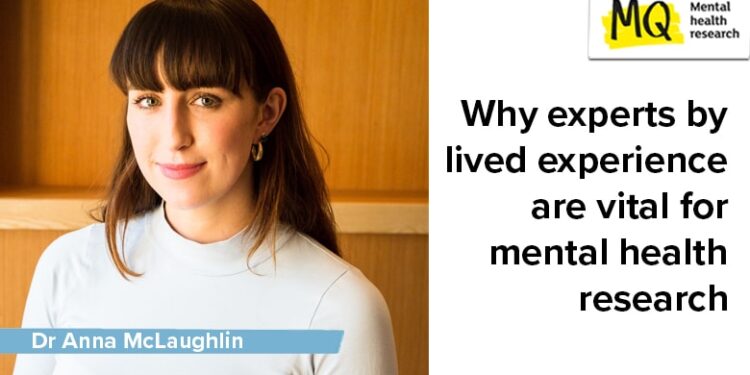Why lived expertise issues for psychological well being innovation
Time
In psychological well being, delays worsen outcomes. Each additional month ready for analysis or therapy will increase the burden on people and society. Startups face related pressures: a brief runway can imply the distinction between life and dying for a product. Even in academia, analysis is constrained by funding cycles.
Integrating lived expertise could take extra time at the start, but it surely prevents wasted effort later. Figuring out points early within the research or product design course of can save considerably extra time and assets than attempting to repair issues later when distrust or boundaries come up.
Belief
Analysis is barely as sturdy because the belief it earns. With out it, folks is not going to take part in research or undertake interventions, nonetheless efficient they might appear on paper.
“The most important distinction lived expertise enter makes is round belief. In psychological well being, and significantly psychiatry, there’s an extended historical past of individuals reacting to interventions with distrust. When folks with lived expertise are concerned, it shifts the sector from being reactionary to being proactive, by designing issues which are reliable from the beginning.” – Dhriti Sarkar, Lived Expertise Knowledgeable Advisor, Wellcome Belief.
“Belief comes from studying by doing collectively. Some issues will work, some will fail, so we have to construct in pauses to replicate and adapt. Saying ‘we don’t know one of the best ways, so let’s determine it out collectively’ creates shared possession.” – Kate Martin, Head of Lived Expertise, Wellcome Belief.
Lived expertise doesn’t erase distrust, but it surely surfaces considerations early and builds credibility by exhibiting that choices are being made with folks, not only for them.
Accessibility
A instrument that works in precept however is impractical to make use of will fail. Trade generally responds higher to consumer wants, however many merchandise have nonetheless flopped by ignoring what folks truly need. The identical applies to analysis the place a flawless research design is ineffective if nobody will participate.
“If you happen to really need to join together with your viewers, you must attain them emotionally, and that’s laborious to do with out direct enter from folks dwelling the expertise you’re attempting to help… If you happen to’re not involving folks with lived expertise early and infrequently, you’re not simply lacking an moral alternative, you’re possible lacking the mark.” – Dr Laura Beavin Yates, Chief Advertising and marketing Officer at Immersion Neuroscience.
By centring lived expertise, accessibility points may be recognized earlier than they develop into boundaries, from unrealistic research calls for to product options that don’t resonate with customers.
New fashions for translational collaboration
If time, belief, and accessibility are the benchmarks of excellent psychological well being analysis, then the constructions we use to ship it want to vary. Nevertheless, lots of our present fashions overlook the voices and connections that make collaboration efficient.
The Zinc VC Behavioural Analysis Report highlights this hole: scientists in startups are doing essential work, however usually in isolation. Data will get caught inside particular person organisations, business sensitivities make it laborious to share, and there’s no central group bringing folks collectively.
Extra versatile, cross-disciplinary networks are one potential resolution. By creating areas the place concepts and proof stream extra freely, and connecting researchers, clinicians, business innovators, creatives, group organisations, and specialists by expertise, we will construct collective information about what truly works.
At Sci-translate, our group is one instance. We deliver collectively scientists, clinicians, creatives, and business specialists throughout psychological well being and behavioural science to share classes throughout conventional boundaries. The mission is easy: to make sure that analysis and interventions are grounded within the real-world priorities of the folks they’re meant to serve, with lived expertise being a core a part of the method.
These sorts of networks usually are not but the norm. But when the UK’s life sciences ambitions are to succeed, significantly in psychological well being, they might type the muse of a translational infrastructure that’s extra agile, inclusive, and genuinely impactful.
Trying forward: in direction of a stronger translational infrastructure
For the UK’s life sciences ambitions to succeed, progress should be greater than monetary. It should imply moral innovation, significant public involvement, and collaboration throughout sectors.
Lived expertise performs an important function on this shift. It grounds analysis in human priorities, builds belief in innovation, and ensures that accessibility is designed in from the beginning. However it might’t be left to probability; it must be constructed into the best way innovation occurs.
We should prioritise fashions of collaboration that put lived expertise on the centre and break down siloes between academia, business, and communities. Solely then will we create options which are credible, accessible, and really impactful.








Discussion about this post